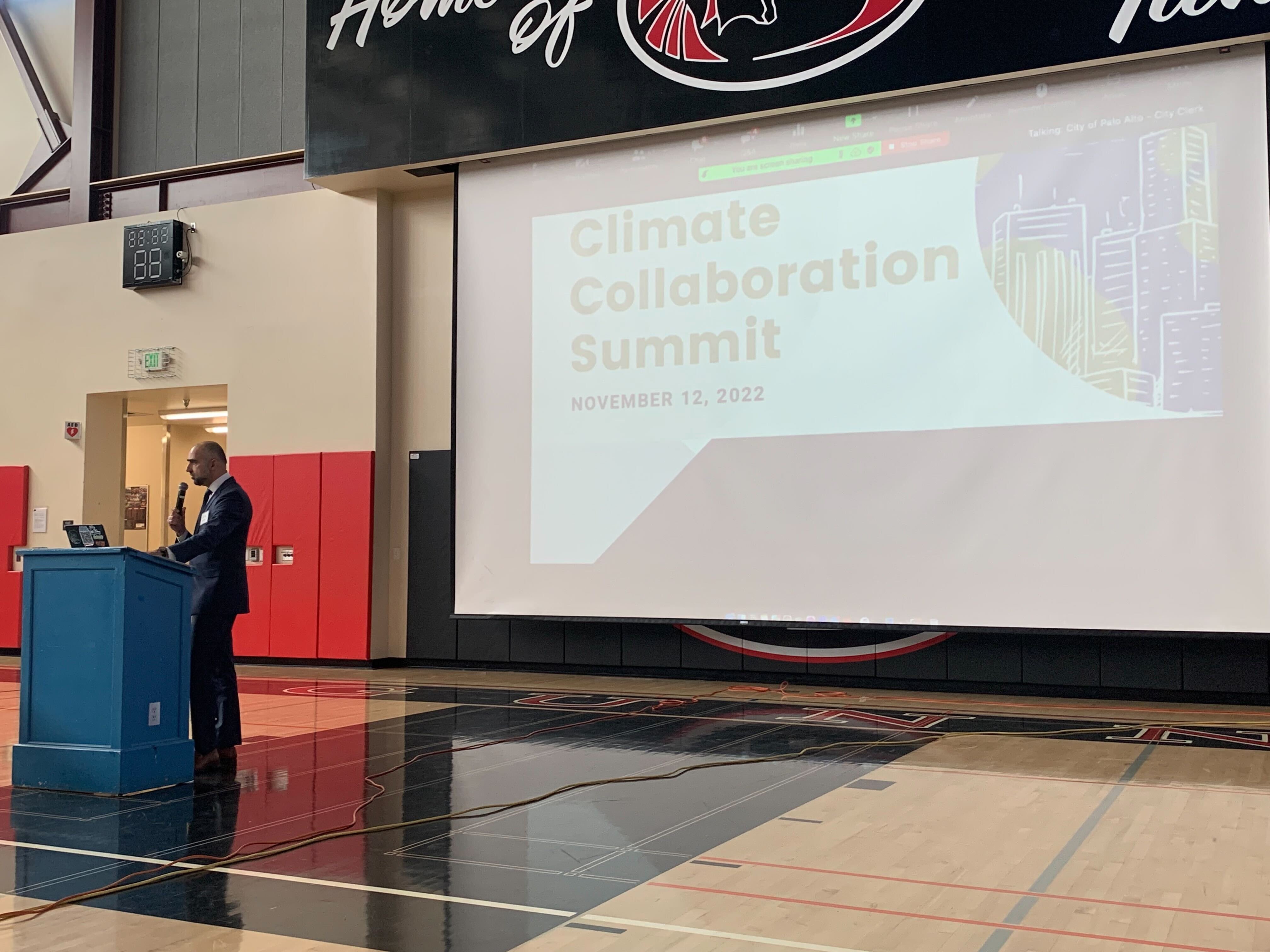“It’s not scary in a faraway 2050 sense anymore. It’s here, and it’s now,” said Michael Wara, policy director of the Sustainability Accelerator at the Doerr School of Sustainability, in front of a group of students, activists and Palo Alto residents at the first Peninsula Climate Collaboration Summit on Saturday.
The summit brought together local leaders, policymakers and researchers to discuss how local communities can lead the way to reducing greenhouse gas emissions with cleaner electricity grids and by adopting more energy-efficient technologies.
Palo Alto Mayor Pat Burt opened the event and highlighted collaboration between local, state and federal governments. He also stressed the importance of open communication between policymakers, activists and traditionally underrepresented communities about climate change.
California State Senator Josh Becker, the conference’s first keynote speaker, praised Palo Alto and other cities that are driving local initiatives to reduce greenhouse gas emissions, telling the audience how local projects can set a precedent for state-wide policies. If Palo Alto successfully reduces emissions, Becker said, he can “take [those emission-curbing tactics] to scale in Sacramento” to support statewide initiatives.
Becker also highlighted recently passed California legislation intended to bring the state to net zero emissions by 2035, specifically Senate Bill (SB) 100 and 887. SB 100 requires that all retail electricity in California be from a zero-emission source by 2045 and SB 887 expands transmission in California’s electricity grid.
Becker represents Senate District 13, which includes Stanford.
Wara was also a keynote speaker at the event, and he opened his speech with a very clear warning. “I think climate change is scary,” Wara said. “Where we live, in Northern California, there’s good reason to be very concerned.”
When discussing solutions to climate change, Wara told the audience that solutions must be accessible for all, saying that “we need to create solutions that create abundance and create affordability, and that’s the challenge.”
He did say their was room for optimism when he enthusiastically shared with the audience that California’s electricity grid was briefly supplied by completely renewable sources for the first time on April 30.
Among the speakers was Ali Nouri, assistant secretary for congressional and intergovernmental affairs at the Department of Energy. Nouri also emphasized the importance of local initiatives in emissions reductions and praised Palo Alto’s leadership.
“It’s really because of all these efforts at the local level, that even in times when there was little to no federal leadership, all of you kept the United States in the fight against climate change,” Nouri said, referring to the former Trump administration.
Nouri then described new initiatives by the federal government to support efforts to decarbonize the US economy, which include $369 billion of investment in clean energy and legislation that will incentivize generators and consumers to use renewable energy and energy-efficient technology.
Diane Bailey, CEO of MenloSpark, also spoke at the event, highlighting how local initiatives need to transform our current energy systems in an equitable way.
The event hosted a panel that included Nouri, Bailey, Burt and John Hamilton, mayor of Palo Alto’s sister city, Bloomington, Ind. The panelists discussed climate politics, regional climate initiatives near Bloomington and Palo Alto, the lowering costs of renewable energy and the role of youth activists in reducing carbon emissions.
The summit was presented by the City of Palo Alto and Acterra, an environmental justice advocacy group. Additional sponsors included the Stanford Office of Community Engagement and Stanford Energy Club, among other organizations. Logistical organizing was undertaken by a group of students led by second-year electrical engineering Ph.D. student Dana Murphy and Katie Rueff, a senior at Henry M. Gunn High School.
“Our goal was to facilitate a conversation about unique solutions,” Murphy told The Daily, “and innovative practices that can be interwoven into as many communities as possible.”
